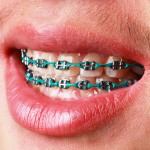
This small study in orthodontic patients suggests that text messaging might improve plaque control in short term. Larger better quality studies are needed to provide more definitive answers.
[read the full story...]
This small study in orthodontic patients suggests that text messaging might improve plaque control in short term. Larger better quality studies are needed to provide more definitive answers.
[read the full story...]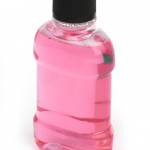
The role of chlorhexidine (CHX) in inhibiting plaque growth has been extensively studied. The aim of the review was to evaluate the effectiveness of CHX-containing dentifrice (DF) or gel (CHX DF/gel) compared with CHX mouthwash (MW). Searches were conducted in Medline-PubMed, the Cochrane Central Register of Controlled Trials (CENTRAL) and Embase databases. Randomized controlled trials [read the full story…]
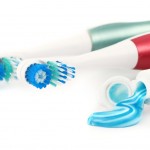
Tooth decay and gum disease are two of the commonest, but preventable diseases known to man. Regular and effective toothbrushing play an important role in the prevention of these diseases. Powered toothbrushes (PTBs) have been available since the 1960s and the question of whether they are better than manual toothbrushes (MTBs) has been with us [read the full story…]

Triclosan is a polychloro phenoxy phenol that has antibacterial and anti-fungal properties. It has been used since the 1970 in a range of products including soaps, deodorants, mouthwashes and toothpastes. The aim of this Cochrane review was to assess the effects of triclosan/copolymer containing fluoride toothpastes (TCT), compared with fluoride toothpastes, for the long-term control [read the full story…]

Toothbrushing at least twice a day with fluoride toothpaste is an effective way of reducing caries. This is confirmed by good systematic review evidence, so teaching patient effective toothbrushing with fluoride toothpaste is a key preventive strategy. The aim of this qualitative study was to explore oral health professionals (OHPs) perspectives regarding their strategies, considerations [read the full story…]
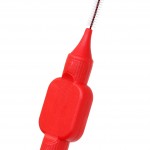
The effective removal of plaque is important for the prevention of both caries and periodontal disease. Interdental cleaning aids are frequently recommended in addition to toothbrushing to improve plaque removal. The aim of this study was to investigate interproximal plaque removal with an angled interdental brush as compared to a straight interdental brush. Adults aged [read the full story…]
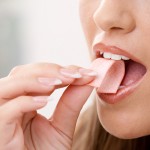
A recent review conducted by the same group as this new review (see Dental Elf 9th July 2012) suggested that the use of sugar free chewing gum used as an adjunct to toothbrushing provided a small but significant reduction in plaque scores. The aim of this review was to assess the clinical effects of medicated, [read the full story…]

There is much interest in the use of the motivational interview, a directive patient centered style of counselling in dentistry to promote behaviour change. This trial looked at a single session of motivational interviewing (MI) on self-performed periodontal infection control. Patients with chronic periodontitis referred to a specialist clinic in Gothenburg, Sweden. Patients randomised to [read the full story…]

Chlorhexidine (CHX) has been used as a mouthwash for many years. The aim of this review was to assess, the effectiveness of Chlorhexidine (CHX) mouthrinse against plaque growth, gingival inflammation as well as the degree of staining. Three databases were searched Medline, Embase and the Cochrane Central Register of Controlled Trials (Central), reference lists of [read the full story…]
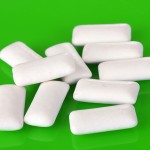
Chewing gum is a activity enjoyed my consumers (particularly teenagers) around the world and is a now multi-billion dollar industry. Historically gums were flavoured with sugar but increasingly sugar substitutes are used, the most common of these being the polyols, sorbitol and xylitol. Chewing stimulates salivary flow and using gum has been recommended when it [read the full story…]